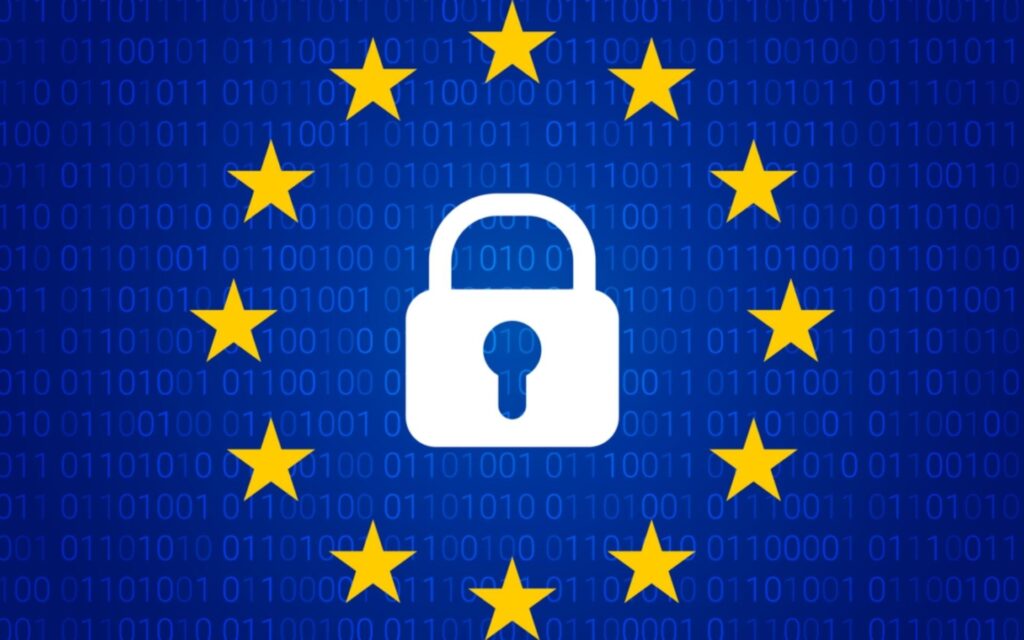7 Things You Need To Know About The Digital Services Act (DSA)


Every social network, search engine, and online market place doing business in the EU will be affected by the Digital Services Act. Here’s how.
Recently, the EU Commission announced that Parliament and member states had reached a “swift policy agreement” regarding the Digital Services Act (DSA).
DSA is an initiative to protect internet users. It establishes an “unprecedented standard” for online platforms. Companies like Google, Meta (Facebook), and Twitter will be held responsible for illegal or harmful content.
The DSA will also force online platforms to disclose how their algorithms work, implement processes to remove illegal goods and content quickly, and a crack down on misinformation spreading by users.
What is the Digital Services Act? When does it go into effect? And what does it mean to platforms and those who use them, including digital marketers?
Here are the facts about DSA.
Jump To:
- What is The Digital Services Act?
- When does the DSA take effect?
- What Online Platforms Need to Comply?
- It’s OK, But What Does the DSA Do?
- What Are Digital Services Companies Require To Do?
- What’s the Deal with Algorithms?
- What does this convey for online advertising?
1. What is the Digital Services Act?
The DSA, currently a piece of legislation being considered by the EU Commission, was first presented on December 15, 2020.
Two other suggestions accompanied this proposal. The first announcement contained the following:
“The Commission today proposed an ambitious reform to the digital space. A comprehensive set of new rules has been developed for all digital services in the European Union, including social media and online marketplace places. They are the Digital Services Act and the Digital Markets Act.
The Digital Markets Act was created to create a level playing field for all businesses. It went into effect in March.
The European Commission reveals that the DSA’s overarching goals are to:
- Protect consumers online and ensure their fundamental rights.
- Online platforms should be transparent and accountable.
- Encourage innovation, growth, and competitiveness in the single market.
This new legislation will make search engines, social media networks, and marketplaces responsible for the content they post.
2. When does the DSA go into effect?
The European Parliament & EU member states have all agreed to bring the proposal forward as of publication.
Two co-legislators are currently reviewing it.
According to the media release of April 23,
“Once adopted, the DSA will be immediately applicable across the EU. Depending on when it is applied, it will apply for fifteen months or starting on January 2024.”
The terms of the DSA will apply to online platforms and search engines that are “very large,” which means they reach at least 45 million users in the EU, even earlier than the four-month mark.
3. What Online Platforms Are Required To Comply?
The legislation defines digital services as “a broad category of online services, ranging from simple websites to web infrastructure services and online platforms.”
All digital services which conduct business within the EU are subject to the DSA regardless of their location – even micro and small enterprises (although the regulations can be tailored to your size).
The EU will exempt 90% of the most expensive regulations from small- and medium-sized businesses that use digital services.
This legislation covers the following types of digital services:
- Online marketplaces
- Social networks
- Content-sharing platforms
- app stores
- online travel platforms
- Accommodation platforms
- Intermediary services, such as domain registrars and internet providers, are also available
- Cloud & web hosting services
- collaborative economy platforms
The DSA also applies “gatekeeper” platforms that “assert a systemic role within the internal market and function as bottlenecks between consumers and businesses for important digital services.”
Platforms with 45 million or more users in the EU, classified as “very large,” will need to evaluate the risk their systems pose to public safety, security, rights, and fundamental rights.
These platforms will need to show that they have appropriate risk management tools in place and will take steps to protect their services from manipulation by bad actors.
Google currently holds a 92.04% market share in the EU’s search engines. It will be subject to the highest regulation.
With its 309 million daily active users across Europe, Facebook also qualifies for the DSA.
Many other platforms and social networks exceed the 45 million EU users benchmark.
- TikTok
- Apple
- Spotify
- Microsoft
- Amazon
Corporate Europe Observatory (CEO), and Global Witness, following a freedom of information request to both the European Commission and Sweden’s government, have seen documents that show heavy lobbying by Big Tech during each step of the DSA’s journey through the Commission to Council to Parliament.
CEO reports that “new self-declared lobby data indicates that during this time Google, Facebook, Apple, Amazon, and Microsoft all increased spending on EU lobbying.”
“In a single year, the Big Tech companies spent more than 27 million euros. They added that all five companies increased their budgets, but Apple was the most notable, with almost double its lobbying spending.
According to some reports, surveillance advertising, user tracking, and behavioral targeting were the most contentious topics.
4. OK, but what does the DSA do?
According to the Commission, the Digital Services Act:
“… Create horizontal rules to ensure accountability and transparency around the impact of online platforms on how our societies thrive.
The DSA is fundamentally a regulatory framework. It will establish rules for how platforms are managed.
- Moderate content
- advertise,
- Use algorithmic processes.
This last point can be highly inconvenient to significant search engines like Google, Meta, and other social/advertising platforms such as Meta. They will need to explain how their algorithms work to users.
Digital services can face severe fines of up to 6% of annual turnover under the DSA for non-compliance.
5. What are the Digital Services Companies’ requirements To Do?
Intermediary services, such as domain registrars and IPs, are subject to the following obligations:
- Transparency reporting
- Terms of service requirements that take into account fundamental rights
- Collaboration with national authorities
- Contact information and where possible, legal representation
Hosting services must follow the above guidelines, “notice and actions and obligation to disclose information to users, ” and report criminal offenses and violations to authorities.
Online platforms are subject to more stringent regulations, as they must comply with the above obligations and include:
- Out of court settlement and complaint and redress mechanisms
- Trusted flaggers
- Anti-abusive notices and counter-notices
- Transparency in recommender systems
- Online advertising transparency that is transparent to the user
The regulations also prohibit online platforms from targeting children with ads and ban targeting users based on specific characteristics.
Marketplaces have special obligations, such as vetting third-party suppliers’ credentials and complying by design. They are subjected to random checks.
Very large online platforms – Meta, Google, etc. All of the above must be followed, and they are also responsible for:
- Crisis response and risk management obligations
- Auditing externally and independently, internal compliance function, public accountability
- Users can choose not to receive recommendations based upon profiling
- Data sharing with researchers and authorities
- Codes of conduct
- Cooperation in crisis response
6. What is the Deal with Algorithms?
Stronger public oversight of online platforms reaching more than 10% of EU’s population (approximately 45 million) has this effect:
“…transparency measures on online platforms on a range of issues and the algorithms used to make recommendations.”
A second section explains that the DSA will allow researchers to access critical data from the most popular search engines to understand better how online risks change.
Official documentation states that countries are the first line of defense under the DSA.
7. What does this convey for online advertising?
According to the Commission, gatekeeping large online platforms has made it difficult for competition to be hampered and left startups and SMEs at a disadvantage.
Large platforms are essential for moderating and content ranking small businesses and organizations.
Gatekeeper platforms like Facebook and Google hold the keys to the consumer data generated through these activities. This puts startups and SMEs in direct competition with gatekeepers who use their data for their purposes (such as selling and targeting SMEs).
DSA will partly level the playing field by transparently revealing the inner workings of ranking algorithms and advertising.
It is sister legislation, The Digital Markets Act will force gatekeeper platforms to grant small businesses access to specific data.
According to the Commission, these two acts will create a safer and more accountable online environment.

